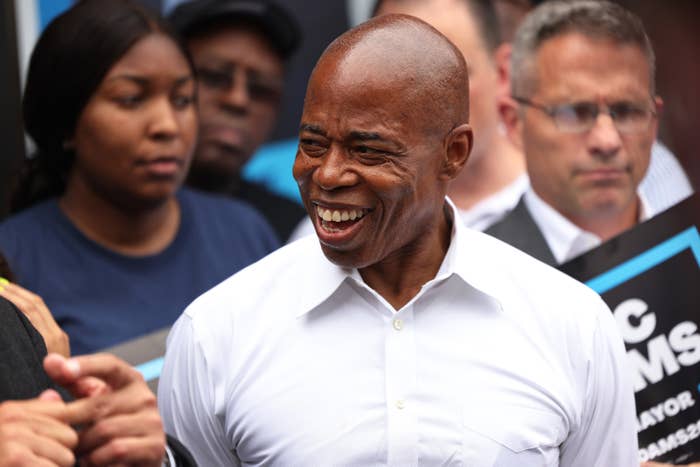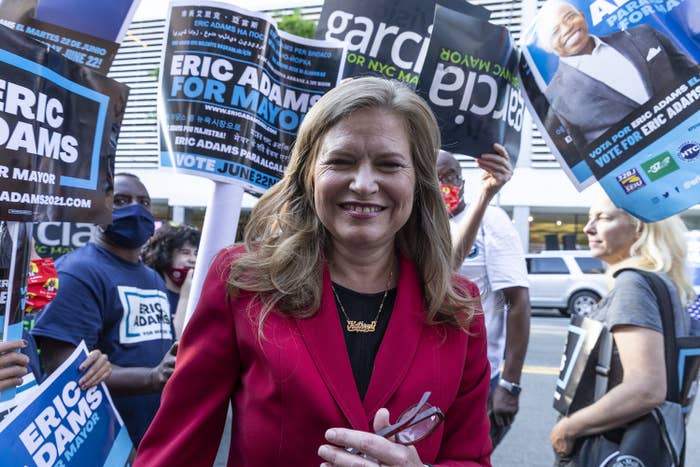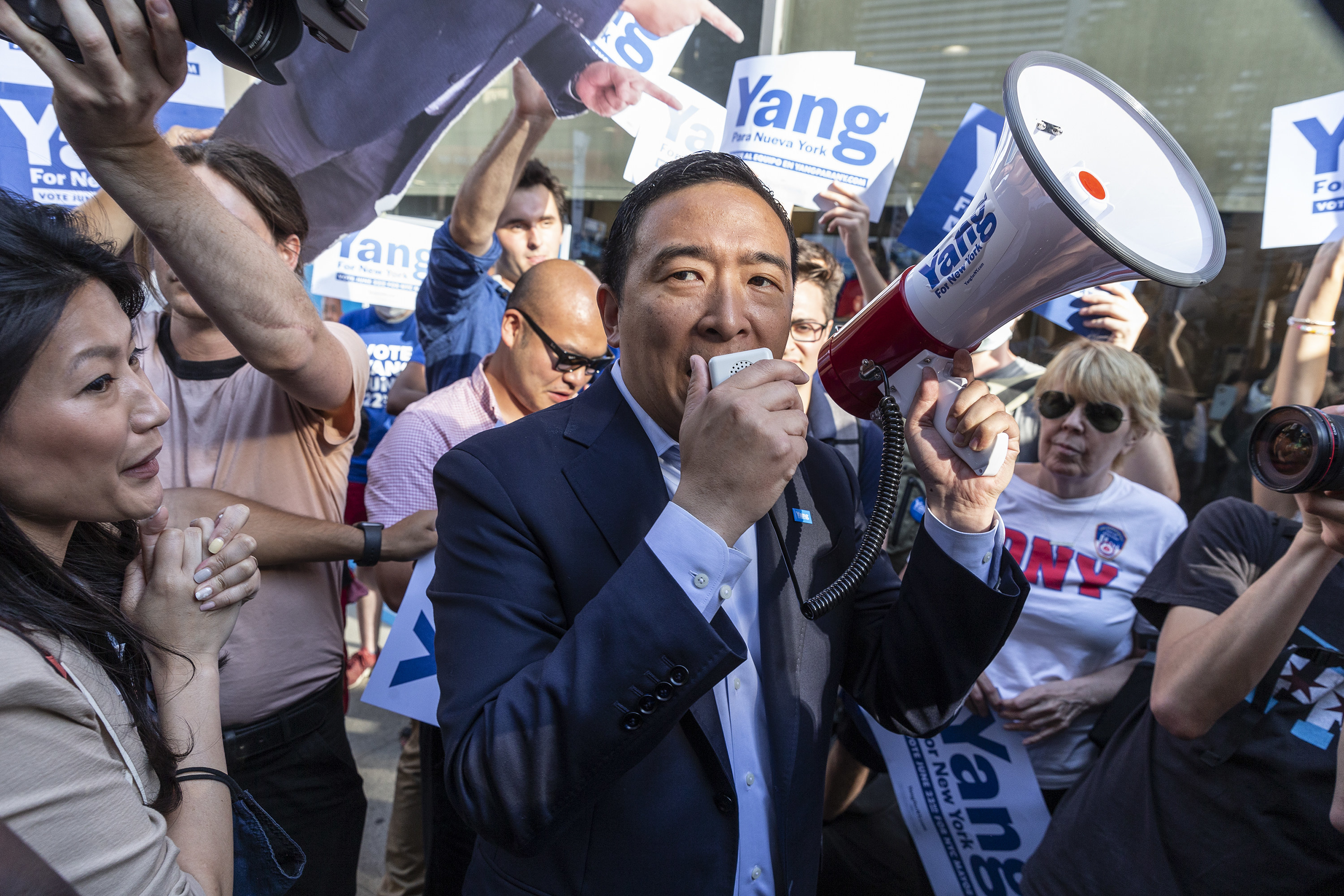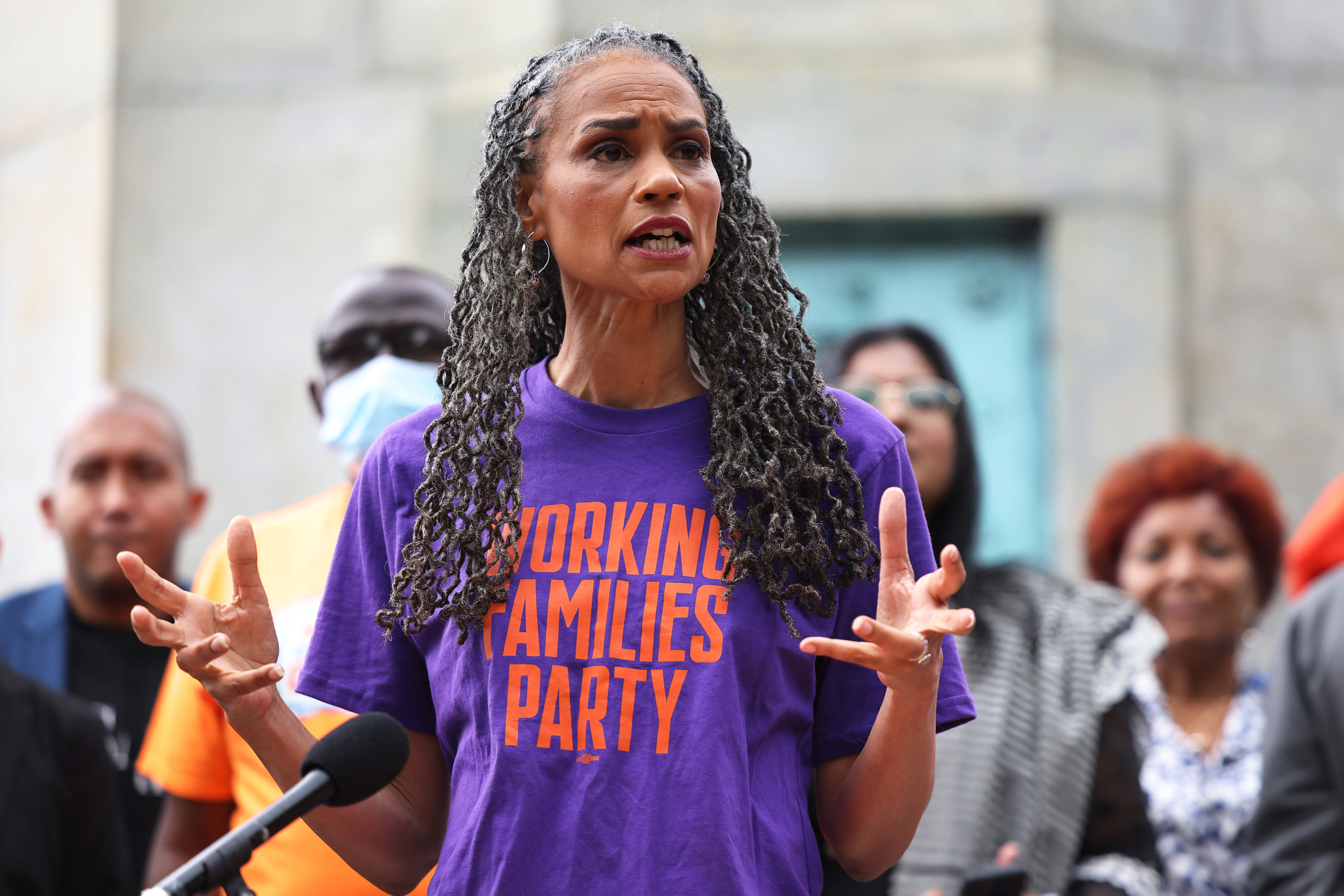
New York City’s mayoral primary has been chaotic, and it may not end after polls close Tuesday night.
Former presidential candidate Andrew Yang was dragged for saying the Times Square subway stop is his favorite in the city, Brooklyn Borough President Eric Adams was the center of a scandal over whether he actually lives in New Jersey, one of the race’s progressives was accused of sexual harassment, and another was accused of union busting.
Though it’s only the primary, it’s functionally a general election for most candidates across the city. Democrats hold most offices in New York City; barring an unexpected twist, it’s highly likely that continues this fall.
And just to make things even spicier, it’s the city’s first swing at ranked-choice voting, a process in which voters rank up to five candidates for each office rather than just picking one. Though Election Day is Tuesday, June 22, and more than 190,000 people participated in early voting that began earlier this month, official results are likely weeks away. That’s due to a combination of several factors, including a July deadline for thousands of mail-in ballots and time needed for the city to tabulate the ranked-choice votes.

According to Rank the Vote NYC, an organization that previously advocated for bringing ranked-choice voting to the city and is now educating people about the process, full results will likely be available within about three weeks of Election Day. The group said it expects early, unofficial results by June 29, an updated count by July 6, and final results around July 12, once all absentee ballots have been counted and received. A spokesperson for the city’s Board of Elections told Bloomberg News that it also expects a final count by July 12.
“Take a deep breath and be patient,” Susan Lerner, the Rank the Vote board chair, told BuzzFeed News earlier this week. “The extra time it takes New York state to count its absentee [ballots] is set by state law, and it’s very pro-voter.”
Due to that state law, the city cannot start counting absentee ballots until June 29, a week after Election Day. Then there is a period of time for voters to be notified about and correct any issues with absentee ballots. Corrected ballots will be due July 9. The city's Board of Elections reported that more than 220,000 people had requested absentee ballots as of Monday.
That delay is made more uncertain by ranked-choice voting.

If no candidate receives 50% or more of first-place votes (as is likely in the large Democratic mayoral primary), the candidate with the fewest first-place votes will be out, and the second-place rankings of the people who voted for them will then be distributed. This process will continue until a candidate wins by amassing 50% or more of the vote.
The city’s Board of Elections has warned that this operation could take weeks.
“We are not going to be able to run a ranked-choice voting tabulation until about a week after the election,” Frederic Umane, the Board of Elections president, said during a public meeting in late May.
And in a recent interview with Bloomberg, he cautioned, “It’s a longer process than people are used to, and we are going to do the best we can to provide information when we can.”
Some people are concerned about the readiness of the board itself, which has been at the center of a controversy. In recent years, it improperly purged thousands of voters from its rolls, a move that disproportionately affected people of color in the city. Just last year, nearly 100,000 ballots were sent out with incorrect names and addresses, though the board blamed the printing company for the mix-up.
Still, some incomplete results are expected on election night. The Board of Elections will release unofficial results of the in-person and early voting ballots received by the city and give the initial standings of the first-place votes cast in the large mayoral field the same day. But the top candidates could change as the ranked-choice tabulation unfolds.
There’ve been just over a dozen ranked-choice elections in the US where the first-round winner loses by the final round, including in mayoral races in Burlington, Vermont, in 2009 and Oakland, California, in 2010. It’s very rare in ranked-choice elections in the US for a candidate who doesn’t come in first or second in the initial round to win, but the large and scattered candidate field in New York means the outcome of the mayoral race is likely to be up in the air for some time.

“This is an opportunity for you to rank your preferences, so put the candidates down in the order that you would prefer they'd be mayor,” Brad Lander, a member of the New York City Council who’s also currently running for city comptroller, another uncertain race with many candidates, said of how he’s advising people to approach the new system. “Vote for people who, if you were the deciding vote for them, you'd feel good about it, and don't vote for people that you wouldn't want to help make the mayor.”
But, the council member added, the tabulation can be somewhat complicated.
“Once you try to start explaining the counting and tabulation process, it becomes pretty confusing pretty quickly. And, to be honest, even people who know a lot about voting and elections accounting can pretty quickly get confused,” he said.
But Lander, who said he has been in touch with Board of Elections officials to discuss the timeline, said he is hopeful that the board is managing the public’s expectations and will in fact be able to release initial tabulations by Friday.
Lerner of Rank the Vote NYC said she believes it will go smoothly, as long as voters, candidates, and election lawyers just trust the process and patiently let it unfold.
“In order for voters to feel confident in the results, the time is necessary,” she said. “We have pretty detailed procedures that ensure that the votes that are counted are cast by eligible voters, and it takes time to determine that. And if you want a well-run and secure election that does not unfairly disenfranchise people now, then you have to give it the time it takes to go through the ballots and make the appropriate determinations.”
